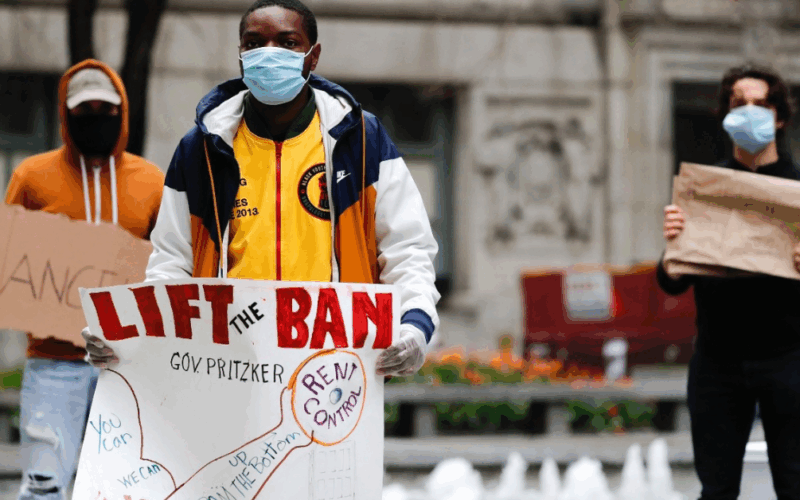Illinois – As renters across Illinois continue to face soaring apartment costs, a growing movement is urging lawmakers to lift the longstanding ban on rent control. Advocates argue that allowing local communities to regulate rent increases could help ease the state’s affordable housing shortage.
Rent control, a policy limiting how much landlords can raise rent annually, has been prohibited in Illinois since 1997. However, cities like New York demonstrate how rent stabilization can help tenants hold onto affordable homes despite inflation and a competitive housing market.
Calls to Empower Local Communities on Rent Control Policies
Diego Morales from the Lift The Ban Coalition is championing the effort to give local governments the authority to implement rent increase caps based on inflation or similar metrics. He emphasized that the housing shortage is not only a problem in Chicago but throughout Illinois.
“It’s time to let the people decide whether or not they would like these types of policies to address the housing crisis,” Morales stated.
The coalition’s push aims to allow communities to tailor rent control laws that suit their unique housing markets, rather than maintaining a one-size-fits-all state prohibition.
Opposition from Industry Groups Highlights Concerns
The proposal has met resistance from the Chicago Association of Realtors. The group argues that lifting the rent control ban could discourage smaller landlords from investing in property improvements, potentially diminishing the quality of available housing.
Additionally, the association contends that rent stabilization may not effectively address underlying affordability issues, suggesting that other solutions might be more impactful.
The Wider Context of Rent Control Policies
- Rent control laws typically limit annual rent increases to prevent sudden spikes that price tenants out.
- Such measures are common in major cities like New York, San Francisco, and Los Angeles.
- Critics often argue rent control can reduce housing supply or deter maintenance investment.
Despite debate, the conversation in Illinois comes as apartment rents have continued to climb, squeezing renters financially and intensifying calls for more affordable housing options.
What Lies Ahead for Rent Control in Illinois?
As lawmakers weigh the potential benefits and drawbacks, the future of rent control in Illinois remains uncertain. The decision could redefine how communities address rent affordability in the years to come.
- Local communities may gain more power to regulate rent increases.
- Potential legislative debates on balancing landlord incentives with tenant protections.
- Ongoing discussions about the best tools to alleviate the housing crisis in Illinois.




